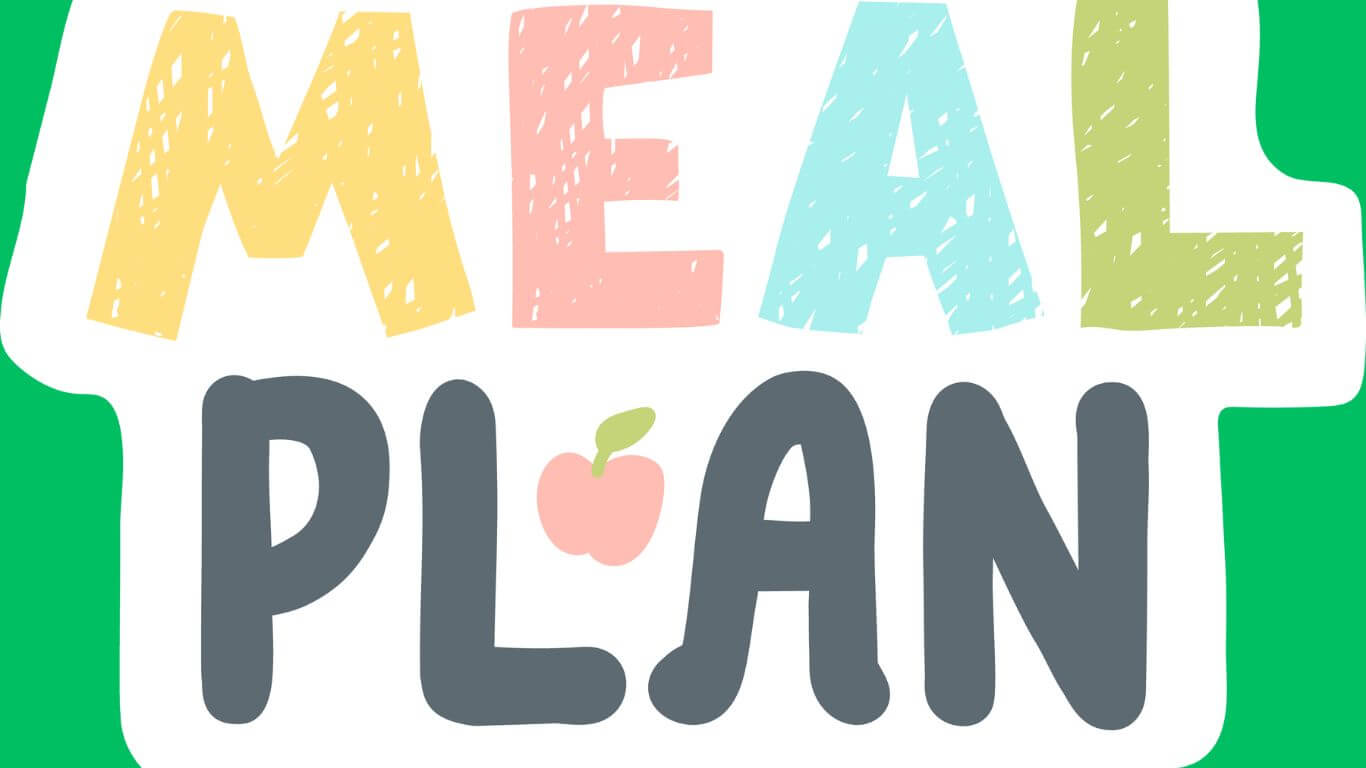College life can be hectic – between classes, assignments, and social activities, finding time to cook healthy meals often seems impossible. But what if I told you that it doesn’t have to be that way? With this easy meal planning guide tailored specifically for college students, you’ll discover how effortless it can be to nourish your body with wholesome food even when your schedule is packed.
From quick breakfast ideas that will keep you energized throughout the day, to simple lunchbox recipes perfect for those on-the-go moments between lectures, this guide has got all your dining dilemmas covered. Prepare yourself for a revolution in your student kitchen – get ready for stress-free meal planning like never before.
Benefits of Meal Planning
One of the main benefits of meal planning is that it allows you to take control of your eating habits and make healthier choices. By planning your meals in advance, you can ensure that you’re following a well-balanced diet that includes all the necessary macronutrients and micronutrients your body needs. This means that you can create a meal plan that includes a variety of fruits, vegetables, whole grains, lean proteins, and healthy fats.
Meal planning also helps you set realistic goals for yourself. When you have a plan in place, it becomes easier to stick to your dietary goals and avoid impulse eating or reaching for unhealthy snacks. You can plan your meals according to your specific dietary needs and preferences, whether you’re following a vegetarian, vegan, or gluten-free diet.
Not only does meal planning promote healthier eating habits, but it also helps you save time and money. By planning your meals in advance, you can make a shopping list and only purchase the ingredients you need. This reduces food waste and ensures that you have everything you need to prepare your meals. Meal planning can help you avoid eating out or ordering takeout, which can be expensive and often less healthy than homemade meals.
Importance of a Well-Balanced Diet
To maintain optimal health and energy levels, it’s crucial for college students to prioritize a well-balanced diet. A well-balanced diet provides numerous benefits that are essential for your overall well-being. When planning your meals, it’s important to set specific goals to ensure you’re meeting your nutritional needs. Understanding macronutrients, such as carbohydrates, proteins, and fats, is key to achieving a balanced diet. Carbohydrates provide energy, proteins support muscle growth and repair, and fats are necessary for hormone production and nutrient absorption.
When it comes to meal planning, it’s important to keep your budget in mind. Eating healthy on a tight budget isn’t impossible. You can save money by purchasing staple ingredients in bulk, opting for seasonal produce, and planning your meals around sales and discounts. Additionally, incorporating variety into your diet is essential to ensure you’re getting all the necessary nutrients. Try to include different fruits, vegetables, whole grains, and lean proteins in your meals.
Setting Realistic Goals for Meal Planning
When setting realistic goals for meal planning, prioritize your nutritional needs and budget to ensure a balanced and affordable diet. As a college student, you have a lot on your plate, both figuratively and literally. With classes, assignments, and social activities, it can be challenging to find time to cook healthy meals. However, by implementing effective time management strategies and incorporating meal prep into your routine, you can stay on track with your nutritional goals.
Start by setting specific and achievable goals for your meals. Consider your schedule, budget, and dietary preferences. Plan your meals for the week ahead, taking into account the ingredients you already have and creating a grocery list for the items you need. This will help you avoid impulsive purchases and save money.
Meal prep is a game-changer when it comes to saving time and staying on track with healthy choices. Dedicate a few hours each week to prepare meals in advance. Cook large batches of staples such as grains, proteins, and vegetables, and portion them into individual containers. This way, you’ll have ready-to-eat meals throughout the week, minimizing the temptation to order takeout or rely on unhealthy snacks.
When grocery shopping, stick to the perimeter of the store, where the fresh produce, meat, and dairy sections are usually located. Avoid processed and sugary foods as much as possible. Opt for whole grains, lean proteins, and plenty of fruits and vegetables. These choices will provide you with the nutrients you need to fuel your body and maintain a healthy lifestyle.
Understanding Macronutrients and Micronutrients
To create a well-rounded meal plan, it’s essential to have a solid understanding of macronutrients and micronutrients.
Macronutrients refer to the three main nutrients that our bodies need in large amounts: carbohydrates, protein, and fats. Carbohydrates are our body’s primary source of energy, so it’s important to include them in our meals. They can be found in foods like grains, fruits, and vegetables.
Protein plays a crucial role in building and repairing tissues, as well as supporting our immune system. Good sources of protein include lean meats, poultry, fish, beans, and tofu.
Fats are also essential for our bodies, as they provide energy and help absorb certain vitamins. Opt for healthier fats found in foods like avocados, nuts, and olive oil.
While macronutrients are essential, it’s also important to pay attention to micronutrients. These are vitamins and minerals that our bodies need in smaller amounts but are still crucial for overall health. Micronutrients play various roles, such as supporting our immune system, aiding in metabolism, and promoting healthy skin and hair.
To ensure you’re getting enough micronutrients, incorporate a variety of fruits, vegetables, whole grains, lean proteins, and dairy products into your meal plan.
Understanding macronutrients and micronutrients is crucial in creating a well-balanced meal plan. By including a variety of carbohydrates, proteins, and fats, as well as incorporating a wide range of fruits, vegetables, and whole grains, you can ensure that your body is getting the essential nutrients it needs to function at its best.
Budget-Friendly Meal Planning Tips
When planning your meals on a budget, it’s important to be mindful of your spending while still prioritizing nutrition. Here are some practical tips to help you save money on food while still enjoying delicious and healthy meals:
- Budget-Friendly Grocery Shopping
- Make a list before you go shopping and stick to it to avoid impulse purchases.
- Look for sales and discounts on staple items like rice, beans, and canned vegetables.
- Meal Prep Tips
- Plan your meals for the week and prepare a grocery list based on those meals.
- Cook in bulk and portion out your meals to avoid wasting food and to have ready-made meals for busy days.
- Cooking on a Budget
- Choose affordable protein sources such as eggs, tofu, and canned fish instead of more expensive meats.
- Utilize inexpensive ingredients like pasta, lentils, and frozen vegetables to create filling and nutritious meals.
- Affordable Recipe Ideas
- Explore budget-friendly recipes online or in cookbooks specifically designed for college students.
- Get creative with leftovers by turning them into new dishes or incorporating them into salads or sandwiches.
- Saving Money on Food
- Avoid eating out frequently and instead, focus on cooking at home.
- Take advantage of student discounts at local grocery stores or farmer’s markets.
By following these budget-friendly meal-planning tips, you can save money on food while still enjoying tasty and nutritious meals.
Quick and Easy Breakfast Ideas
Start your mornings off right with a variety of quick and easy breakfast ideas that will keep you energized throughout the day. As a college student, you may be pressed for time in the morning, so it’s important to have some go-to options that are both convenient and healthy.
One time-saving breakfast idea is to prepare overnight oats. Simply mix oats, milk or yogurt, and your favorite toppings in a jar the night before. In the morning, you’ll have a delicious and nutritious breakfast ready to grab and go.
Another option is to make a batch of homemade granola bars or muffins on the weekend and store them in individual portions for a quick breakfast throughout the week.
If you find yourself rushing out the door, try some on-the-go breakfast options like a smoothie packed with fruits, vegetables, and protein powder. You can also make breakfast sandwiches by layering cheese, egg, and your choice of meat on a whole wheat English muffin.
For those who prefer meal prepping, consider making a big batch of scrambled eggs or a frittata and portioning it out for the week. You can also prep single-serving containers of yogurt with granola and fresh fruit for a quick and satisfying breakfast.
Nutritious Lunch Options for Busy Days
For a college student’s busy days, prioritize nutritious lunch options that will fuel your afternoon with energy and focus. With a little meal prep and some time-saving hacks, you can have quick and easy lunches that are both delicious and nutritious. Here are some ideas to get you started:
- Meal Prep Tips:
- Cook a large batch of grains like quinoa or brown rice at the beginning of the week and portion it into individual containers. This will save you time during the week when you can simply add some protein and vegetables to create a balanced meal.
- Pre-cut your veggies and store them in airtight containers. This will make it easier to grab and go when you’re in a rush.
- Easy Recipes:
- Wrap: Fill a whole wheat tortilla with lean protein like grilled chicken or tofu, along with some fresh veggies and a spread like hummus or avocado. Roll it up and you have a portable and nutritious meal.
- Salad in a Jar: Layer your favorite salad ingredients in a mason jar, starting with the dressing at the bottom and ending with the greens on top. When you’re ready to eat, shake it up and enjoy.
Simple and Healthy Dinner Recipes
To ensure a nutritious and satisfying dinner, consider incorporating these simple and healthy recipes into your meal planning routine. Dinner is often the biggest meal of the day, and it’s important to make choices that will nourish your body and keep you energized. Here are some quick and easy dinner ideas that are not only delicious but also packed with nutrients.
| Recipe | Ingredients |
|---|---|
| Baked Salmon | – Salmon fillets – Olive oil – Lemon juice – Garlic – Salt and pepper |
| Quinoa Stir-Fry | – Cooked quinoa – Mixed vegetables (such as carrots, bell peppers, and broccoli) – Soy sauce – Sesame oil – Ginger |
| Chicken Lettuce Wraps | – Ground chicken – Lettuce leaves – Carrots – Water chestnuts – Hoisin sauce – Soy sauce |
| Veggie Pasta | – Whole wheat pasta – Assorted vegetables (such as zucchini, bell peppers, and cherry tomatoes) – Olive oil – Garlic – Parmesan cheese |
These recipes are simple to make and offer a variety of healthy options. They can be prepared in a short amount of time, perfect for busy college students. The baked salmon provides omega-3 fatty acids and lean protein, while the quinoa stir-fry offers a balanced mix of whole grains and vegetables. The chicken lettuce wraps are a flavorful and low-carb option, and the veggie pasta is a great way to incorporate more vegetables into your diet.
Snack Ideas for Sustained Energy
For optimal energy throughout the day, you should incorporate a variety of nutritious snacks into your meal-planning routine. Snacks can provide a much-needed boost of sustained energy, especially during long study sessions or when you’re on the go.
Here are some healthy snack options to consider:
- Snack ideas for studying:
- Trail mix: A mix of nuts, dried fruits, and dark chocolate provides a balanced combination of protein, healthy fats, and carbohydrates to keep you focused and energized.
- Greek yogurt with berries: The protein in Greek yogurt will help keep you full, while the natural sugars in berries provide a quick burst of energy.
- Portable snacks for on-the-go:
- Nut butter and banana sandwich: Spread some nut butter on whole grain bread and add sliced banana for a delicious and portable snack that’s packed with protein, fiber, and potassium.
- Protein bars: Look for bars that are low in added sugars and high in protein, such as those made with nuts, seeds, and whole grains.
Having these snacks readily available will help you stay fueled and focused throughout the day. Remember to choose snacks that are easy to pack and require little to no preparation. With these snack ideas, you’ll have the energy you need to conquer your busy college schedule.
Preparing Meals in Advance for Busy Weeks
To ensure you have nutritious meals ready to go during busy weeks, it’s important to plan and prepare your meals in advance. By following some simple prepping tips and time-saving strategies, you can make your life easier and still enjoy delicious meals throughout the week.
One of the best ways to save time and effort is by making make-ahead meals. Spend a few hours on the weekend to cook a large batch of your favorite dishes, such as soups, stews, or casseroles. Portion them out into individual containers and store them in the fridge or freezer. This way, you can simply reheat and enjoy a homemade meal whenever you’re pressed for time.
Freezer-friendly recipes are also a great option for busy weeks. Prepare meals that can be easily frozen, like burritos, pasta bakes, or stir-fries. Simply cook and assemble the ingredients, then freeze them in individual portions. When you’re ready to eat, just thaw and heat them up.
Batch cooking is another time-saving technique. Choose a day when you have some extra time and cook large quantities of ingredients that can be used in multiple meals. For example, cook a big batch of chicken breasts that can be used for salads, sandwiches, or wraps throughout the week.
How to Shop Smart for Meal Planning
When shopping for meal planning, be sure to choose budget-friendly ingredients that fit your dietary needs and preferences. To shop smart and make the most of your grocery budget, consider the following meal-planning tips:
- Plan your meals in advance: Before heading to the grocery store, take some time to plan out your meals for the week. This will help you create a shopping list and avoid buying unnecessary items.
- Make a grocery list: Write down all the ingredients you need for your planned meals. Stick to your list while shopping to avoid impulse buys.
- Buy in bulk: Purchasing staple items in bulk can save you money in the long run. Look for deals on items like rice, pasta, and canned goods.
- Shop the sales: Check out the weekly ads and coupons to find discounts on items you regularly use. Take advantage of sales to stock up on items that can be stored for future meals.
- Choose seasonal produce: Seasonal fruits and vegetables are often more affordable and fresher. Incorporate them into your meal plan for healthy choices and cost savings.
- Compare prices: Take the time to compare prices between different brands and stores. Consider buying store brands, as they’re often cheaper without compromising quality.
Utilizing Leftovers for Future Meals
Utilize the leftovers from your previous meals to create delicious and cost-effective future meals. Using leftovers creatively is a great way to maximize your food resources while reducing food waste. By repurposing leftovers, you can save time and money, as well as reduce your environmental impact. Meal prepping with leftovers is a smart strategy for busy college students who want to eat well without spending too much time in the kitchen.
Here is a table that provides some ideas on how to repurpose common leftovers into new and exciting dishes:
| Leftovers | Repurposed Meal Ideas |
|---|---|
| Roasted Chicken | Chicken stir-fry with vegetables |
| Spaghetti and Meatballs | Meatball sub sandwiches |
| Grilled Vegetables | Veggie quesadillas |
| Rice | Fried rice with mixed vegetables |
| Baked Potatoes | Loaded potato skins |
Incorporating Variety Into Your Meal Plan
To add variety to your meal plan, try incorporating different types of proteins, vegetables, and grains into your dishes. This won’t only keep your taste buds excited, but also provide you with a well-rounded and nutritious diet. Here are some ideas to help you introduce flavorful combinations and explore different cuisines:
- Experiment with ethnic cuisines: Try making Mexican fajitas with marinated chicken or beef, or indulge in a flavorful curry with aromatic Indian spices. Exploring different ethnic cuisines can introduce you to new flavors and cooking techniques.
- Make use of seasonal ingredients: Incorporating seasonal produce into your meals not only adds variety but also ensures that you’re using fresh and nutritious ingredients. For example, in the summer, you can make refreshing salads with juicy tomatoes, crisp cucumbers, and vibrant greens.
- Explore vegetarian options: Even if you’re not a vegetarian, incorporating vegetarian meals into your plan can provide you with a different set of nutrients and flavors. Consider making a hearty vegetable stir-fry with tofu or a flavorful chickpea curry.
- Try international flavors: Don’t be afraid to venture beyond your comfort zone and try dishes from different countries. You can make sushi rolls for a taste of Japan, or prepare a fragrant Thai curry with coconut milk and spices.
Tips for Eating Healthy on Campus
To maintain a healthy diet while on campus, it’s important to prioritize nutritious options and make smart choices about your food. Here are some practical tips to help you eat healthy on campus.
First, stock up on healthy snacks. Keep a stash of fruits, nuts, granola bars, and yogurt in your dorm room or backpack. These snacks will come in handy when you’re in between classes or need a quick energy boost.
Take advantage of the dining hall options. Most college campuses offer a variety of healthy choices, including salad bars, grilled chicken, and fresh vegetables. Be sure to fill your plate with colorful fruits and veggies to get a good dose of vitamins and minerals.
Consider meal prep. Spending a little bit of time each week to plan and prepare your meals can save you time and money in the long run. Cook large batches of healthy meals and portion them out for the week. This way, you’ll have nutritious meals ready to go when you’re busy with classes and studying.
When eating out, choose wisely. Opt for grilled or baked options instead of fried, and ask for dressings and sauces on the side. Look for restaurants that offer healthier choices, such as salads, lean meats, and whole grain options.
Lastly, if you have food allergies, be sure to communicate your needs to the campus dining staff. They can help you navigate the menu and provide alternatives if needed.
Healthy Eating on a Tight Schedule
Maintaining a nutritious diet while juggling a busy schedule can be challenging, but with some strategic meal planning, you can ensure that healthy eating remains a priority. Here are some practical tips to help you eat healthy on a tight schedule:
- Meal Prep:
Dedicate a few hours each week to meal prep. Cook large batches of nutritious recipes and portion them out into containers for easy grab-and-go meals throughout the week.
Pre-cut fruits and vegetables so they’re ready to eat as healthy snacks. - Time Management:
Plan your meals and snacks in advance, allowing you to make healthier choices when you’re short on time.
Use downtime between classes to prepare and pack your meals for the day. - Meal Ideas:
Opt for quick and easy meals like salads with protein (chicken, tofu, or beans) or whole grain wraps filled with lean meats and veggies.
Incorporate healthy grains like quinoa or brown rice into your meals for added nutrition. - Healthy Snacks:
Keep nutritious snacks on hand, such as nuts, seeds, yogurt, and fresh fruit, to curb hunger and avoid reaching for unhealthy options.
By incorporating meal prep, effective time management, nutritious recipes, meal ideas, and healthy snacks into your routine, you can maintain a healthy diet even on a tight schedule.
Meal Planning Tools and Apps to Simplify the Process
Incorporating meal planning tools and apps into your routine can greatly simplify the process of maintaining a healthy diet on a tight schedule. With the abundance of meal planning tools and apps available today, organizing meals and sticking to a nutritious eating plan has never been easier. These meal-planning tools and apps offer a variety of features to help you streamline your meal-planning strategies and make healthier choices.
One popular meal planning tool is a digital calendar or planner. By inputting your schedule and meal preferences, you can schedule your meals in advance and ensure you have all the necessary ingredients on hand. Some apps even offer recipe suggestions based on your dietary preferences and restrictions, making it easier to plan meals that fit your needs.
Another helpful tool is a grocery list app. These apps allow you to create and organize your shopping lists, making it easier to stay organized and avoid forgetting any essential items. Some apps even offer features like barcode scanning or voice recognition to make adding items to your list a breeze.
Meal planning apps also offer the convenience of pre-planned meal ideas and recipes. These apps provide a wide range of options, from quick and easy meals to more elaborate dishes. Some even offer customizable meal plans based on your dietary goals and preferences.
Staying Motivated and Consistent With Meal Planning
Stay motivated and consistent with your meal planning by setting specific goals and tracking your progress. Here are some practical tips that will help you stay on track:
- Set Clear Goals: Determine what you want to achieve with your meal planning. Whether it’s eating healthier, saving money, or improving your cooking skills, having a clear goal in mind will keep you motivated.
- Try New Meal Prep Ideas: Keep things interesting by exploring different meal prep ideas. Look for easy recipes online or in cookbooks specifically designed for college students. Trying out new dishes will prevent you from getting bored with your meals.
- Manage Your Time Wisely: Time management is crucial when it comes to meal planning. Set aside a specific time each week to plan your meals, create a grocery list, and do your grocery shopping. This will help you stay organized and ensure that you have all the ingredients you need.
- Practice Portion Control: Portion control is essential for maintaining a balanced diet. Invest in some reusable meal prep containers and portion out your meals in advance. This won’t only help you control your calorie intake but also save you time during busy weekdays.
- Make Grocery Shopping Easier: Plan your meals before going grocery shopping to avoid impulse purchases. Create a detailed grocery list and stick to it. You can also take advantage of online grocery delivery services to save time and avoid the temptation of buying unnecessary items.
Conclusion
In conclusion, meal planning is a valuable tool for college students to maintain a well-balanced diet, save money, and make healthier food choices.
By setting realistic goals, understanding the importance of macronutrients and micronutrients, and utilizing budget-friendly tips, students can easily incorporate healthy eating into their busy schedules.
Apart from that, meal planning tools and apps can simplify the process, while staying motivated and consistent is key to achieving long-term success.
Start meal planning today and enjoy the benefits of a healthier lifestyle.












